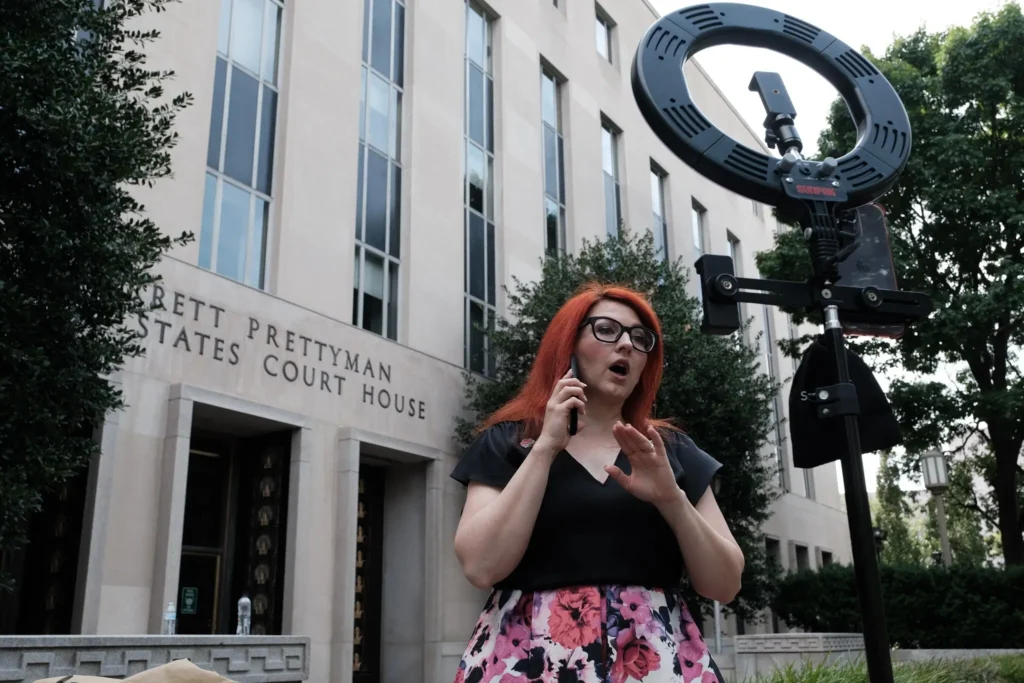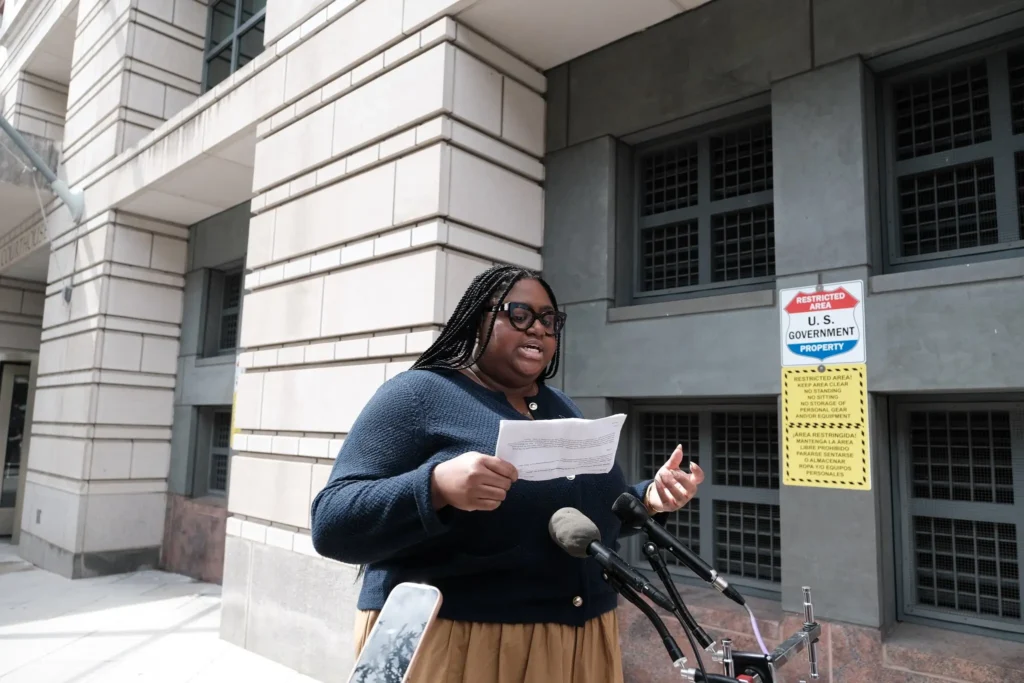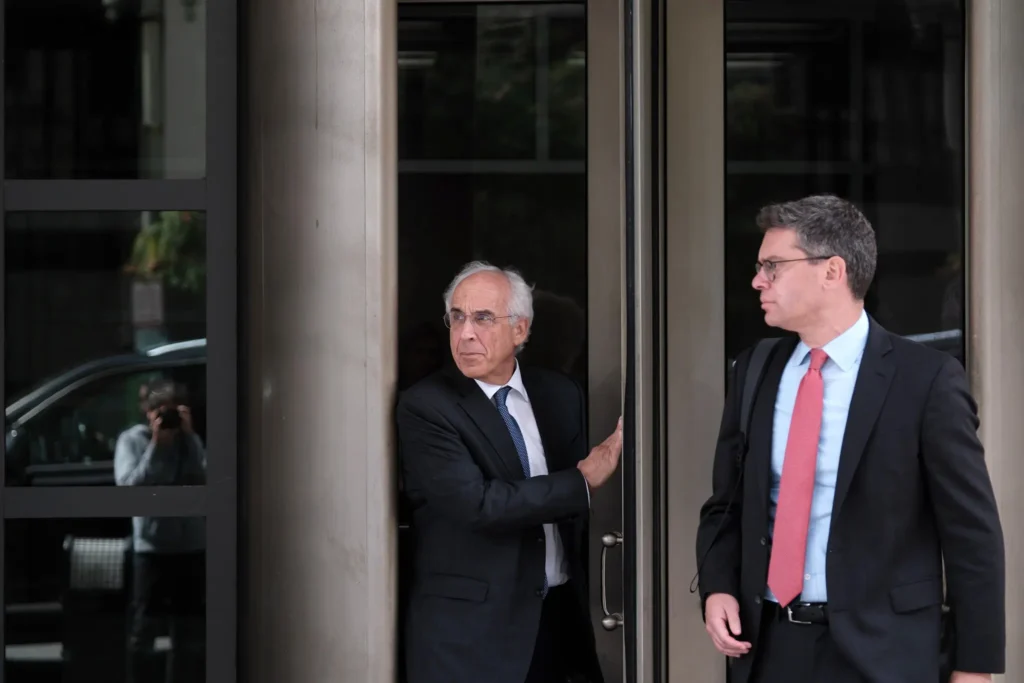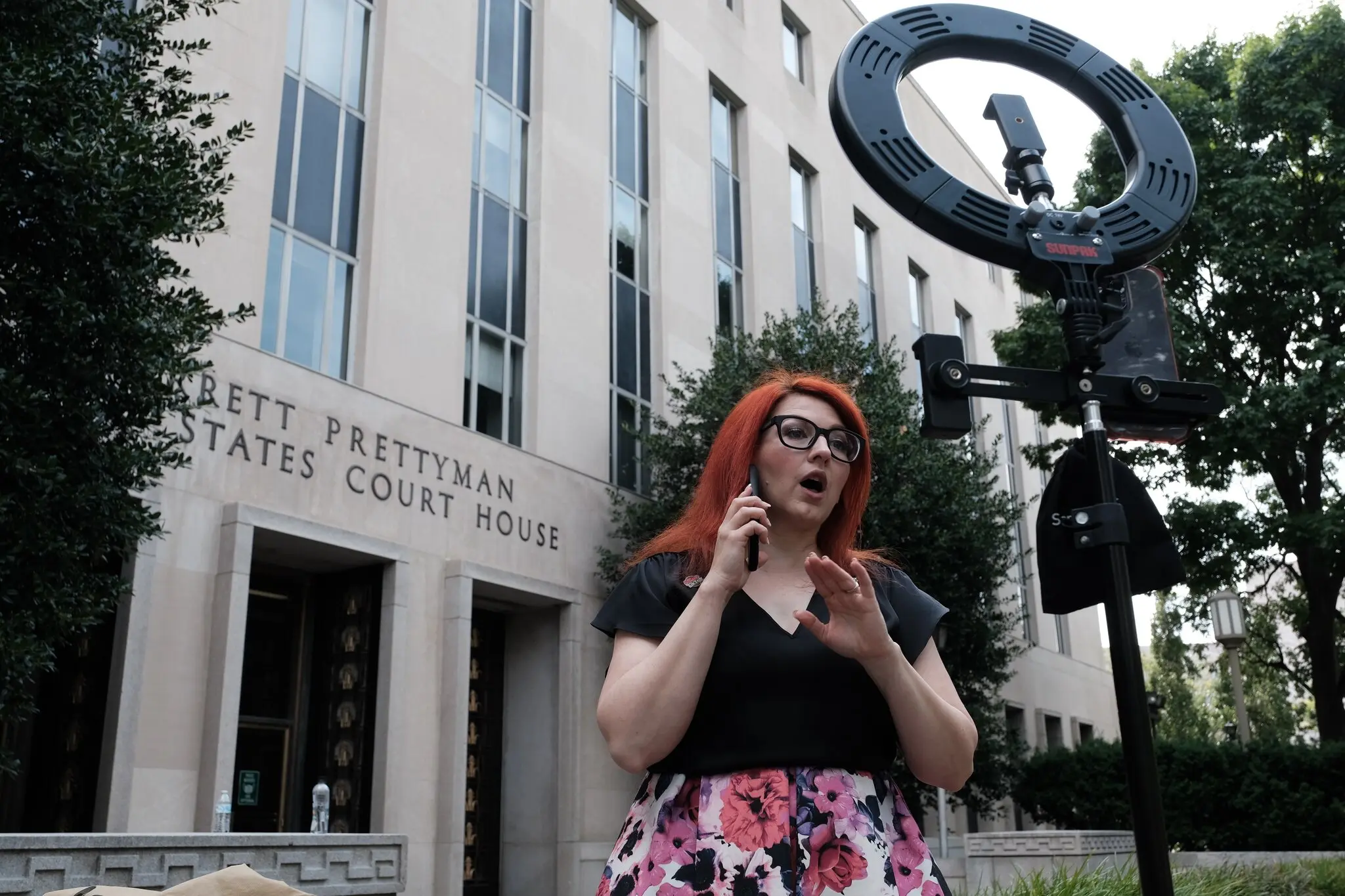
The ongoing legal battle between TikTok and the U.S. government took a critical turn recently as a panel of federal judges expressed skepticism about the popular app’s legal defense against an impending ban. At the heart of this high-stakes case is whether TikTok, owned by the Chinese company ByteDance, will be forced to sell its U.S. operations to a non-Chinese entity or face a potential ban, as mandated by U.S. law.
In the recent hearing before the U.S. Court of Appeals for the District of Columbia Circuit, the judges posed sharp questions to both TikTok’s lawyers and the government’s legal team. This case could have far-reaching consequences for not only TikTok’s future in the U.S. but also the broader issues of national security, foreign ownership of tech companies, and the limits of free speech.
TikTok’s Legal Challenge: A Landmark Case
TikTok has become a cultural phenomenon, with more than 170 million users in the U.S. alone, but it faces growing scrutiny from U.S. lawmakers and intelligence officials, who claim the app poses a significant national security threat. The U.S. government argues that ByteDance’s ownership of TikTok could allow the Chinese government to access sensitive information about Americans or spread disinformation. Although no direct evidence of such activities has been provided, the government’s concerns have led to bipartisan calls for action.
In April, Congress passed a law that requires ByteDance to divest its U.S. TikTok operations by January 19 or face a ban. TikTok, along with a group of its content creators, filed a lawsuit in May to block the law, arguing that it is an unjustified violation of free speech under the First Amendment. The case is now being heard by the U.S. Court of Appeals, and both sides are pushing for a resolution before December 6 to allow time for potential appeals.
Judges Question TikTok’s Legal Argument
During the recent hearing, the three-judge panel scrutinized TikTok’s claims, signaling doubt about whether Congress overstepped its authority by passing the law targeting ByteDance. Judge Neomi Rao remarked that TikTok’s legal position on congressional authority seemed to rely on “a very strange framework,” suggesting that the app’s defense may be on shaky ground.
Similarly, Judge Douglas Ginsburg appeared unconvinced by TikTok’s assertion that it was unfairly singled out by the U.S. government. He noted that TikTok’s argument presented “a rather blinkered view” of the statute, questioning whether the law genuinely targeted just one company or if it addressed broader national security concerns.
While skeptical of TikTok’s arguments, the judges also pressed the government on how banning TikTok might infringe on the First Amendment rights of American users. They questioned how the government would justify restricting access to a platform that plays such a pivotal role in the free expression of ideas and content in the U.S.
Free Speech Concerns: TikTok vs. the Government
At the heart of TikTok’s defense is the argument that the U.S. government’s actions violate the First Amendment. Jeffrey Fisher, representing a group of TikTok creators, argued that banning the app would undermine the free speech rights of American users, emphasizing that “the speech on TikTok is not Chinese speech; it is American speech.”
Fisher likened the ban to censoring the work of Alexis de Tocqueville, author of Democracy in America, simply because he was French. However, Judge Rao rejected this comparison, stating, “We’re not talking about banning Tocqueville in the United States,” hinting at the complexity of balancing national security concerns with constitutional rights.
TikTok’s legal team is also urging the court to apply the highest standard of scrutiny in reviewing whether the law violates the First Amendment. If successful, this would require the government to demonstrate a compelling interest and narrowly tailored measures to address national security threats without banning TikTok entirely. However, the government has argued that a lower standard of scrutiny should apply, suggesting that the law passes constitutional muster under a less rigorous test.
A Ban Could Reshape the U.S. Digital Landscape
If TikTok is banned or forced to divest, the ripple effects will be felt across the U.S. digital landscape. TikTok has become one of the most popular platforms for content creation, with millions of users depending on it for entertainment, social interaction, and income. The so-called “creator economy” has flourished thanks to TikTok’s unique algorithm that helps to amplify viral content, creating opportunities for influencers and entrepreneurs alike.
A ban could force users to migrate to alternative platforms, such as Instagram or YouTube, but content creators argue that these platforms lack TikTok’s distinct model for curating and disseminating speech. Some creators worry that a ban would stifle innovation and creativity, while others fear the government could set a dangerous precedent by determining which foreign-owned apps can operate within the U.S.
Talia Cadet, a TikTok content creator and plaintiff in the case, expressed concerns that the government’s actions might infringe on users’ rights to free speech. “The ban sets a dangerous precedent for the government telling us how and with who we can communicate,” Cadet said. “I can’t stand for that, which is why I’m part of this lawsuit.”

Broader Implications: National Security and Digital Cold War
Beyond the immediate impact on TikTok, this case also highlights the broader geopolitical tension between the U.S. and China. Banning TikTok would escalate the already strained relationship between the two superpowers and further fuel the so-called digital cold war. China has condemned U.S. efforts to force a divestment of TikTok, viewing the move as part of a broader strategy to undermine its technological ambitions.
Meanwhile, U.S. officials continue to argue that TikTok represents a unique national security threat because of ByteDance’s ownership. While the government has not provided direct evidence of the Chinese government using TikTok to access U.S. data or spread propaganda, the potential risks have led to increased pressure to take action.
In addition to concerns about data privacy and misinformation, some U.S. lawmakers have pointed to the Chinese government’s control over technology companies as a reason for targeting TikTok. They argue that ByteDance, like other Chinese firms, could be compelled to share data with the Chinese government under national security laws in China.
A Divided Public Opinion on TikTok
While U.S. lawmakers and intelligence officials remain focused on the potential security risks posed by TikTok, public opinion appears to be divided. According to a recent Pew Research Center survey, only 32 percent of Americans currently support a ban on TikTok, down from 50 percent in March 2023. This decline in support suggests that many Americans may not view the app as a significant threat to national security, or they may be more concerned about government overreach in restricting access to social media platforms.
What’s Next?
The outcome of this landmark case could have profound implications for the future of TikTok in the U.S. and the broader tech landscape. If the judges rule in favor of TikTok, it could set a precedent for foreign-owned apps to continue operating in the U.S. despite national security concerns. If the government prevails, TikTok may be forced to sell to a non-Chinese company or face a complete ban in the U.S.
As both sides await the court’s decision, legal experts predict that the case could eventually reach the Supreme Court. Whether TikTok will remain a staple of American digital culture or be forced off the app store shelves will depend on the outcome of this critical legal battle.


